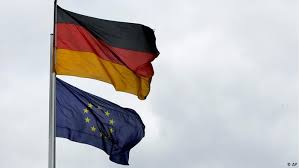

GERMAN-FOREIGN-POLICY.com – January 7, 2021
(Own report) – The German foreign policy establishment is entering the second year of the Covid-19 pandemic with new plans for EU global power. Whereas in particular western powers and their allies have been overwhelmed by new waves of the pandemic, at times being confronted with rapidly increasing numbers of casualties, “Internationale Politik” (IP), Germany’s leading foreign policy periodical, is debating the question of “what Europe lacks to assume global power.” The demand that the Union must have more courage to assume global power had already been raised in several leading German media organs last fall. According to a poll, nearly half of all Germans surveyed agree that the EU can “play a strong role in global policy,” similar to that played by the USA and China – particularly followers of the Green Party (52 percent) and those of the FDP (56 percent), along with the generation aged between 18 and 29 (70 percent). Whereas, the IP calls on “Europe” to enhance its “international impact”, former EU commissioner Günther Oettinger cautions against the “complete overconfidence” evident in many EU capitals – “a kind of hubris.”
“Setting Standards Globally”
Demands for the EU to vigorously assert itself as a “global power” had already been raised last fall in liberal and conservative wide-circulation media organs. In October, the German weekly Zeit-online called for “more courage to assume global power.” The Union “must consider itself a global power.”[1] A little later, the Minister of Development, Gerd Müller, and the former foreign policy expert at the influential Bertelsmann Foundation, Werner Weidenfeld, declared in “Die Welt”, a daily owned by Springer, that the “EU has what it takes, to be a global power.” “Its sovereign – the nearly 400 million people with their top economic potential – and solid military equipment have lifted the EU to the rank of a global power.”[2] Almost two decades ago, Weidenfeld had used similar arguments to declare that the EU was a “global power in the making” (german-foreign-policy.com reported.[3]). Together with Müller, he now argues that “by virtue of its economic power, Europe” should “set standards in a digitalized and globalized multipolar world.” To accomplish this, Brussels of course needs not only a “more operational political framework” – if possible “flanked by a European strategic council” – but, for example, also a “European” army with a “joint command structure.”